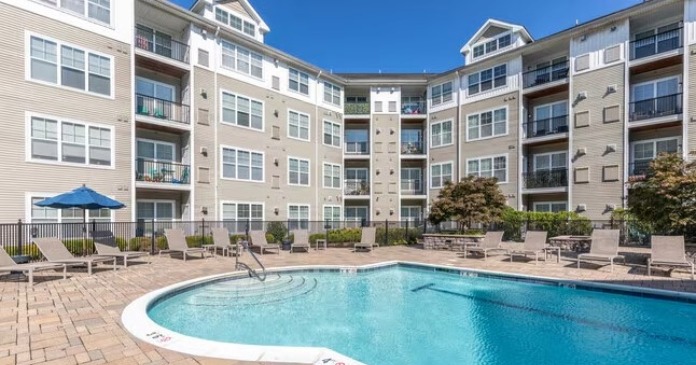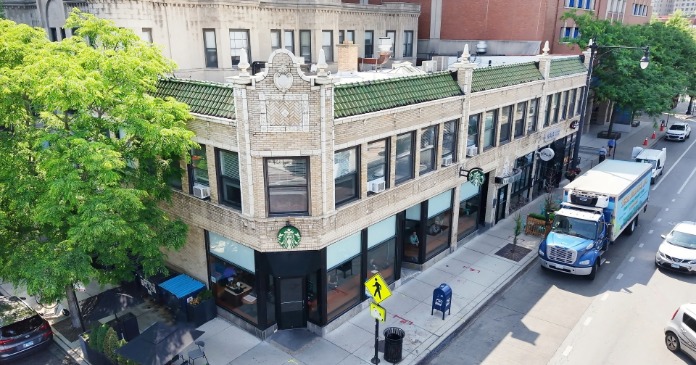Time. Newsweek. Even Katie Couric has completed a segment that’s being readied for airing. Here’s what all the talk is about: faith-based student housing.
It’s a story that really begins in the unlikely town of Berkeley, Calif. While it’s perhaps a place known more for tie-dye, wind chime spirituality, it’s where Randy Bare and Charles Oewel became founding partners of the company, Student Center Associates (SCA), an organization specializing in the development and management of mainline Christian-based student housing.
Bare, a veteran campus minister, and Oewel, a multihousing developer for decades, combined their passions to address both the serious lack of student housing, and a growing need for resources within campus ministries throughout the U.S.
The God-developer duo first met when rehabbing Westminster House, the Presbyterian Campus Ministry Center at U.C. Berkeley. Today, Westminster House provides housing for 175 students.
SCA immediately took the show on the road, using Westminister as a model, and now a growing number of campus ministries across the country have added, or have begun plans of adding, student housing.
Their success is propelled by several emerging trends. First, Protestant and Catholic campus ministries have struggled to attract students and retain qualified staff. This is due, in large part, to declining funds from their denominational headquarters. Such ministries often went unrecognized by dispirited and overworked campus ministers and their Boards.
And while this group continued to “keep the faith” with little to no resources, the land they had accrued, typically located adjacent to state university campuses around the country, skyrocketed in value.
At the same time, student housing reached a crisis point as it became one of two housing sectors (affordable being the other) in the nation to show no growth in inventory, but wide increases in market need according to the National Multi Housing Council report last year. One significant reason: lack of develop-able land within close proximity to college campuses.
Suddenly, campus ministries across the country were sitting on a gold mine.
Even still, pressure on dorms and residence halls continued to escalate. As it stood, most campus dorms were constructed in the late 1950s, early 1960s to house baby boomers who were moving through the educational system in record numbers. Severely outdated, many of those same dorm rooms offer double or triple occupancy inside a meager 10 by 15 feet. To make matters worse, they also share a floor bathroom down the hall with 50 other residents.
To be certain, college age children of boomers have grown up within a significant paradigm shift to their parent’s generation. They will not live in the 1960’s dorms unless forced, and have begun a mass exodus to off campus housing. Gone are the days of toughing it out for the sake of getting an education. Delayed gratification is for, well, boomers. That’s the generation who’s experienced several decades of prosperity and wise investing, and can afford to provide for their children in the manner to which they’re accustomed.
In recent years, a number of providers, including REIT IPOs such as College Park, have emerged as student housing specialists, while offering apartment style amenities and lifestyle.
Both students and parents prefer the “by the bed” model, a leasing model that has now become standard in student housing. In leasing by the bed, students avoid individual liability for rent and utilities beyond their share should one of the roommates leave. This bundling of rent, furniture, utilities, Internet, phone and cable into one monthly fee is equivalent, or less, than university dormitories. The market for individual leases has been proliferated by university campuses for years.
Campus Ministries suddenly had an wide open opportunity to fulfill their historic mission: Provide housing with emotional, social and spiritual support appropriate to undergraduates. The ministries offered just one more step to these students prior to full independent living.
One of the essential components of the ministry’s housing offering is a program branded “Residential Life,” in essence providing loco parentis or “in place of a parent.” Aside from having fun, a key goal of the residential life program is to create community within the residence, one which supports a well balanced education, reduces student isolation and increases retention. This program also encourages and promotes socialization, and helps students lead positive, healthy lives.
Intervention in alcohol and substance abuse, date rape and sexual abuse, eating disorders and suicide are emerging problems that must be dealt with in addition to creating a community support and activity agenda for the student residents.
Campus ministries now work with property management companies to provide this “high touch” environment. Resident life is staffed with resident assistants drawn from the ministry and trained in the same manner as RAs hired by the universities. In essence, Campus ministries provide a comprehensive wellness program that benefits the residential community and the campus ministry program.
Bare and Oewel are encouraged by the partnerships they’ve developed with other campus ministries that were inspired by Westminster House, where Bare still serves half-time as Campus Pastor. As the San Francisco Chronicle said in its latest article:
Some students and their parents said they were attracted by the ties to religion in the student housing. When Rosemary Lopez of San Diego heard that her son Gilbert wanted to attend U.C. Berkeley, she told him, “over my dead body.” Then a friend told her about Westminster House, which also opened a second location for 44 students nearby. “We felt a little more comfortable with that,” Lopez said. “It seemed like a safe environment. Knowing that there is a Christian presence on the Berkeley campus makes us feel more comfortable.” The cost for students — about $10,700 for a double at Westminster house– is slightly more than that of traditional campus dorms. The housing provides a regular revenue stream for the ministries. With churches cutting back on funding for campus ministries, they are looking for other sources of revenue, and their valuable property near campuses provides the perfect opportunity.
Echo boomers, known to travel in packs of friends, have long been a generation about community. The faith-based housing, along with its campus ministry counterpart, lends itself to such community building, as well as the rising interest in religion and spirituality among college students.
There is no religious qualification to live at Westminster House, yet the ministry does hope to attract students to their programs and services. Residents can be anything from agnostic to Catholic, Jewish or Muslim, and of course, Presbyterian.
Westminster House also promises the full college experience. Says Frances Loreto, 18, “I was sort of hesitant because I first thought it would be less social that the dorms. But the parties here are pretty exciting.”
Mark Elsdon, pastor of Pres House at the University of Wisconsin in Madison has followed the Berkeley model and recently started construction on a 280-bed residence hall scheduled to be complete for Fall enrollment. He shares the sentiment of other ministries across the country: If it could be done in Berkeley, it could be done anywhere.”Berkeley isn’t the friendliest to organized religion,” remarked Elsdon.















